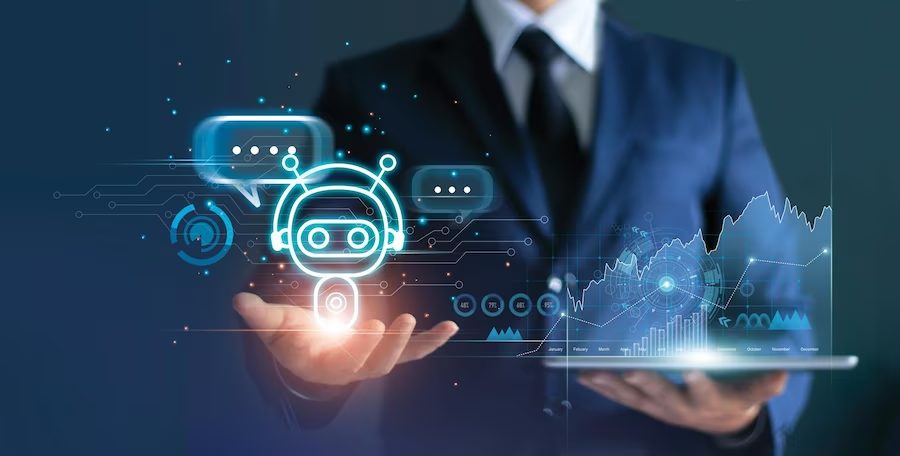Technology At Work: The Future Of Automation In Business
3 Mins Read
Published on: 20 February 2023
Last Updated on: 11 November 2024

toc impalement
Experts are predicting that AI technologies could boost the economy by up to 10% of the UK GDP by 2030. While this is an initial projection for the next decade, it’s also true that automated systems and machine learning already make up a key part of professional industries in the UK.
Whether you’re an entrepreneur or you’ve been working in the industry throughout your career, it’s imperative to know about the rapidly developing role of AI in the corporate sphere.
How Has Automation Already Transformed Businesses?
The earliest applications of automation in businesses involved simple robots used on production lines in factories. The subsequent evolution of PNP transistors has paved the way for more complex robotics to be produced on a larger scale, which is used for automation in various applications.
Programming allows for automation in more online systems, useful for keeping track of accounts and company finances.
Additionally, automation is expected to grow from existing use in industries like healthcare, technology, financial services, and energy production.
What Are The Benefits Of Using Automated Systems In The Workplace?

1. Minimized human error
One of the biggest advantages of using AI professionally is that it can help to reduce errors made by the human workforce. Along with increasing accuracy and precision, automation can work on a task for extended periods too.
This is because the decisions taken in every step of the work by an AI technology have been manually pre-programmed according to a set of algorithms.
2. Full Availability
It’s not in human nature to be productive for the entirety of a working day. Humans need time off and breaks in order to balance their personal and work lives effectively, but AI works in entirely the opposite way. Automated machines can ‘think’ much more quickly than humans can, all while performing several tasks simultaneously.
3. Lower risk
In accident-prone environments like factory floors and busy construction sites, robots can help companies to overcome major risk factors. Whether the task involves exploring the depths of the oceans or handling explosive or hazardous materials, programmed machines with metal housing can survive almost anything.
4. Efficiency
When they’re implemented in the right ways, automated technologies save businesses both time and money. Because tasks are much more likely to be completed accurately, quality control checks might not need to be as thorough.
5. Repetitive functions
Whether you manage a production line or direct new manufacturing for a company, it’s more than likely that you’ve encountered the issues that come with asking staff to undergo repetitive tasks. When AI replaces human workers for one specific task only, the outcome can be extremely positive for a business.
What About The Drawbacks?

A. Limited task capacity
At the moment, AI technologies aren’t really applicable in jobs that require humans for highly detailed or artistic work. Certain skills can’t be replicated by computers and robots just yet, especially when they involve raw human talent and originality.
B. High cost
Along with the initial investment, AI technologies can be expensive to keep and maintain too. Adopting new automation is a big risk for any business, so it’s important for each company to be financially prepared for the commitment.
Related: Bringing Cadence And Automation To Your Sales
C. Staff redundancy
Experts warn that artificial intelligence is likely to kill off jobs, creating a new group of multi-millionaires while workers in certain sectors are laid off. From copywriters to computer programmers, it’s likely that many workers will need to retrain in the next ten years.
Final Thoughts: What’s The Future Of Automation?
Through the next few decades, large companies are more likely to start using AI technologies to make their workflow more efficient. From self-driving cars to automated haulage, delivery services, and passenger transport, the expected upcoming applications for AI are all-encompassing.
Read Also:


















Comments Are Closed For This Article